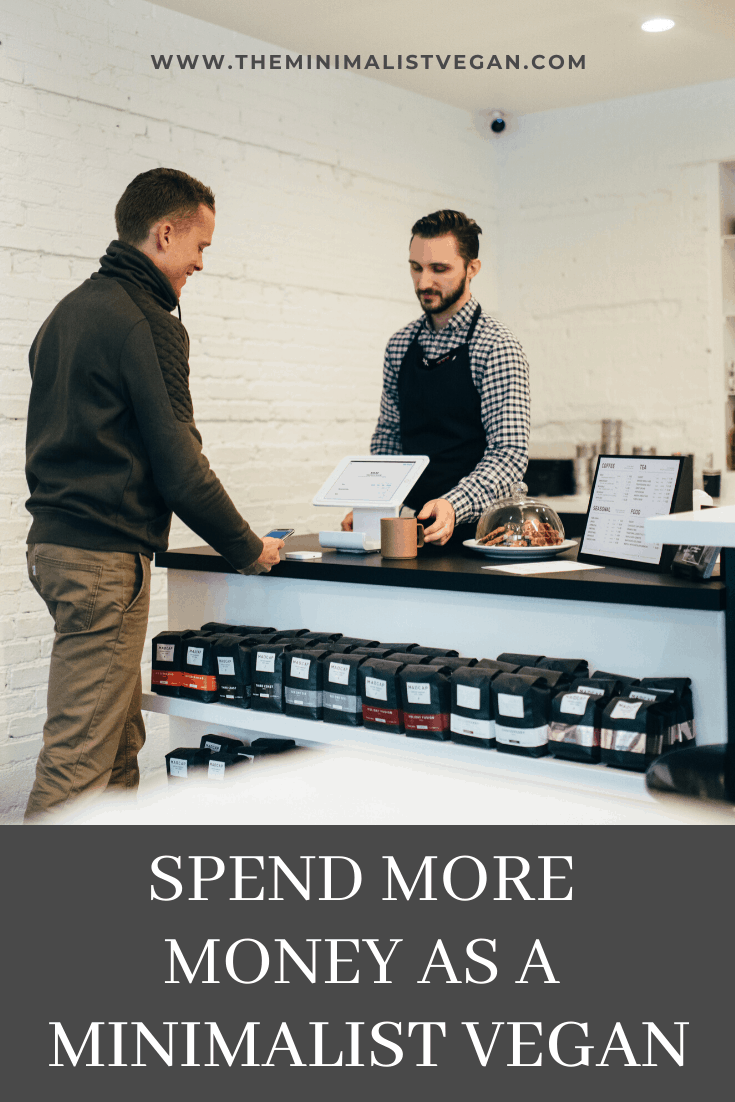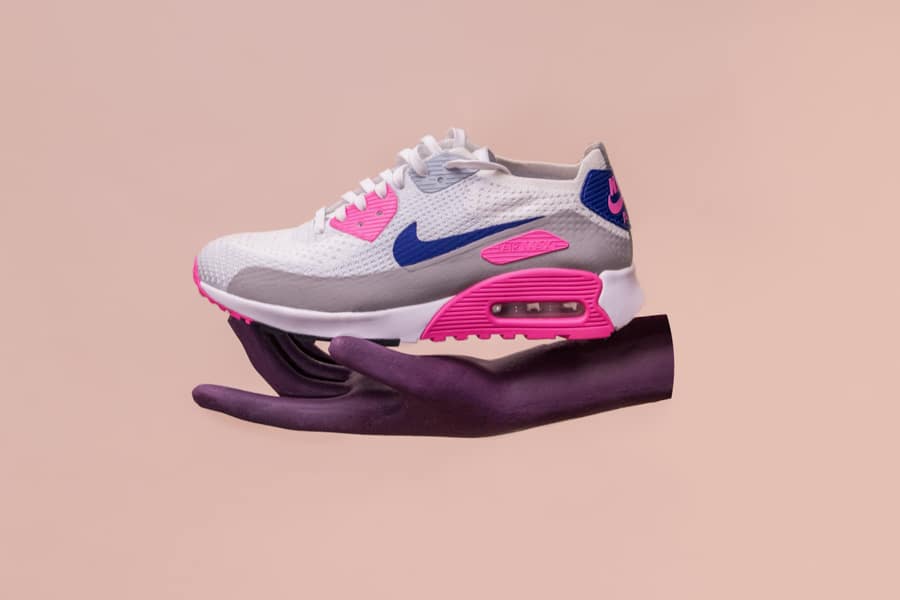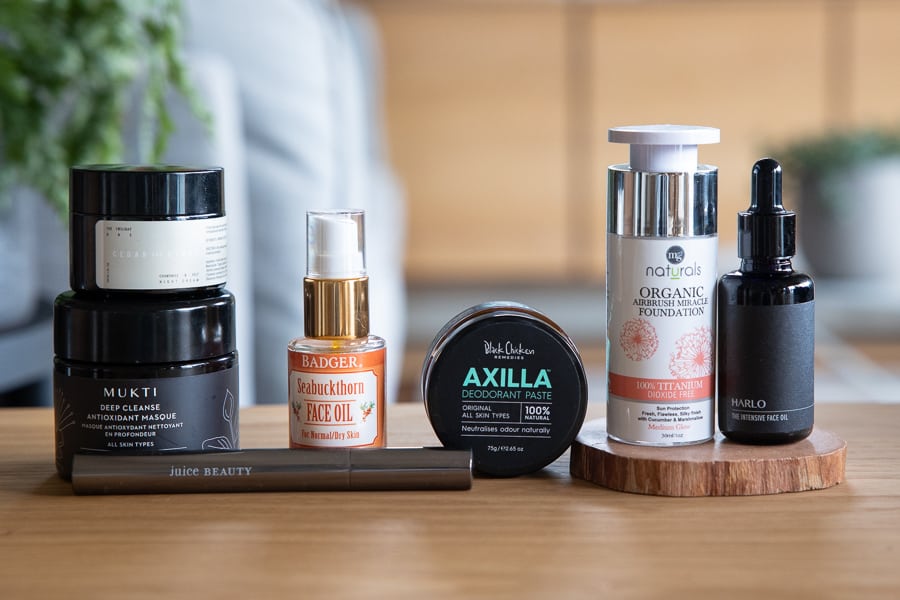We came into the world empty-handed and will leave the world empty-handed.
In our lifetime we have a finite amount of resources at our disposal. Let’s make it count!
At the time of writing this article, I’m living in Canberra, which is the capital city of Australia. It’s an incredibly wealthy city with high levels of disposable income.
However, like many rich cities, most of this money is spent on shit we don’t need. Even worse, we spend money on products and services that do more harm than good.
We buy toxic plastic toys for our kids and pets, we purchase personal care products riddled with harmful chemicals, and of course, our culture loves spending money on fashion without thinking about the true cost.
The excess stuff we have accumulates as clutter in our homes or gets thrown into landfill, adding to our environmental crises.
In this post, I want to explore how we can use money in a way that aligns with our values.
To get things started, let’s talk about business
At its core, the business is in the process of selling products and services to customers. The goal is to make more money (revenue) than you spend (expenses). The difference between revenue and expenses is profit, e.g. $10 revenue – $5 cost = $5 profit.
Conversely, if expenses exceed revenue, the difference is a loss.
A business is usually deemed successful if it’s consistently profitable. With more profit, the company has more resources to grow and create jobs for prospective employees.
An example of a widely successful business is Apple—which recently reached a market cap valuation of 1 trillion dollars! Apple is hugely profitable as their products are priced at a premium but the cost to make their products is relatively low.
The more consumers buy Apple products, the more products Apple is incentivised to produce.
Every business works this way. Create a product or service people want, sell it to a customer base, reinvest in the business, and grow it to become profitable.
There are many benefits to having successful businesses. As I mentioned earlier, a business creates employment opportunities and supports economies.
See, most businesses need a combination of 1) customers 2) price of product or service or 3) cost of product or service.
You can still be profitable if you have a cheap product that is cheap to make, as long as you have a lot of customers.
On the flip side, you could have a small customer base but a premium product with a reasonable cost to produce the product.
Some businesses excel in all three areas—alas Apple.
With success comes great responsibility
To be profitable, business owners are motivated to decrease their costs of making products. It’s in this process where businesses may act in unethical practices to keep costs low.
Ethical practices mean different things to different people. For us, we define an unethical practice as the process of exploiting humans, animals and/or the environment.
Unethical practices based on our definition include:
– Underpaying workers.
– Workers being forced to work in dangerous working conditions eg. buildings that are overcrowded or not well constructed as well as little to no heating/air conditioning.
– Forced to work longer hours without extra pay or bonuses.
– Using animals in the production process.
– Using harmful chemicals that inevitably end up in landfill.
These practices are implemented to reduce costs and to, therefore, increase company profits.
So each time you spend money with a business that engages in these methods, you’re in essence signalling to that business that they should continue their unethical practices.
How do you determine if a business is ethical or not?
With crafty product labelling and creative advertising, it’s challenging to determine which business is ethical and which one isn’t.
Even then, drawing such a strong line is perhaps the wrong approach.
We ran an online store for a couple of years based on buying and reselling organic, vegan, fair-trade and sustainable products.
Maša and I have spent countless hours sourcing ethically made everyday essentials. Everything from makeup to household cleaning products.
Suppliers would almost give up on us because of the sheer volume of questions we would ask them based on their supply chain. Half the time, they couldn’t tell us where their ingredients were sourced or how their products are manufactured overseas.
This experience was an eye-opener, and we thought, “if business owners didn’t know these facts, how could their customers possibly know?”
So rather than asking; “is this business ethical or not?” ask “is there a better alternative that I could support?”
Learning from Shark Tank
For those of you who don’t know, Shark Tank is a reality TV show where entrepreneurs pitch their business ideas to a panel of famous investors.
Investors are looking for the next big business that will yield an attractive return on their investment.
We used to love watching Shark Tank because it’s an entertaining show, and it also taught us a lot about business. You get to see interesting products and services solving interesting problems.
You also start learning what consumers want. And it’s at this point where the show draws some concerns.
It’s one thing to start and grow a business because it ticks the box of customers, cost and price point, but it’s scary when these products engage in unethical practices.
What a lot of these entrepreneurs are not aware of is the compromised supply chain in pursuit of lowering the costs of their products.
But in defence of entrepreneurs at Shark Tank, they are looking for solutions based on customer demand.
This is why I want to put forward the case of encouraging all of us to spend money.
Spend in line with your values
We hear the saying all the time, “each time you spend money, you are placing a vote with your dollar.” As a minimalist vegan, are you voting in line with your values?
Here’s a brief breakdown of minimalist and vegan consumers comparatively:
A minimalist consumer is intentional about what they spend their money on.
A vegan consumer avoids spending money on businesses that exploit animals.
Put the two together, and you have one heck of a conscious consumer.
With this heightened consciousness, we have the opportunity to support businesses that are genuinely trying to do the right thing. Furthermore, we’re super focused on supporting companies that add value to our lives.
Value-driven customers support value-driven businesses.
For example, we have a local ice cream shop (that has mainly vegan options) five minutes up the road from where we live. We’re so fortunate to have delicious vegan ice cream so close to us.
But we’re also happy to spend money at this cafe because the owner doesn’t get lots of customers, and we want him to stick around.
So rather than getting commercialised dairy ice cream (not that we would being vegan) from the supermarket and growing their profits, we instead invest our cash with the little local guy up the road trying to run an ethical ice cream business.
This is one of many examples of asking the question, “is there a better alternative?”
Practice conscious consumerism
Minimalism for us is not about spending less. It’s about spending better.
Many of you who are reading this article, like us, are most likely in a situation of privilege. Even though it doesn’t feel like it, you’re much richer than you think—when measured on a global scale.
You don’t need to fall into the trap of relying on your government to make a positive change. You have the power to shift the demand for ethical products based on how you spend your money.
So my challenge to you is to ask the question every time you buy something; “is there a better alternative that’s more in line with my values?”
If you need a new car, what’s the better alternative? Challenge yourself to perhaps find an electric vehicle that is ethically made without animal products. Yes, that means you may need to pick up the phone or email the carmaker. But isn’t it worth it?
If you want coffee, what’s the better alternative? Does your cafe source fair-trade and organic coffee, and have alternative vegan options for cow’s milk?
Each time you ask better questions of businesses, they take notice. It’s in the best interest of entrepreneurs to stay close to the needs and wants of their customers so that they can adjust to changes in the market. If they don’t, they risk losing their customers to competitors.
Create a movement of creative, ethical businesses
Think about this for a second. In your lifetime, your hard-earned cash could contribute to a movement of intentional, ethical, and transparent businesses that still stay true to the benefits of capitalism.
Imagine a world where there’s an abundance of vegan cruises, zero-waste restaurants, iPhone’s manufactured from 100% recycled materials, plastic-free malls, thriving animal sanctuaries, I could go all day.
It can happen. And it will happen. We need more courageous entrepreneurs who are creative in how they solve problems, and we as consumers need to spend time with intentionality and support these businesses.
That’s the recipe for shifting the culture. Stop spending money on shitty products that are toxic to you, animals and the environment and invest in good businesses that add value to your life. Always choose quality over quantity.







I really like articles like this that make me reflect on my daily choices. Each and everyone of us is responsible to create a better world. I want to believe we can make a difference, step by step. As small as it might be. But we have to try.
Thanks for sharing this article!
Hey Sandra, thanks for reading and commenting. You’re so right. Sometimes it feels like our actions are insignificant, but we have to start somewhere. All the best.
Great article! We as a global community have to train ourselves to divorce from all those “unnecessary needs” we have been conditioned to adopt thanks to well-marketed products! At some stage of our history, humanity started measuring happiness with possessions rather than blessings and experiences… but hopefully that will be a reversible journey when we all elevate our consciousness, start re-connecting with mother nature and give way more value to minimising our impact on the planet rather than to what is the outfit of the day!
Couldn’t have said it better myself Vanessa! Love your passion and as you said, let’s hope this is all reversible as we re-program our paradigms regarding consumerism. Thanks for adding your thoughts to the conversation.
Thanks for the heads up about Biome, will check them out next time I need something. I loved your ‘Imagine a world…’ sentence, wouldn’t that be incredible. Great post, thanks. Sorry if you get this twice, my first post vanished. Jenni
Hi Jenni! Thanks for taking the time to leave a comment. Yes, it would be amazing to live in that world. Step by step. You will love Biome! Have a wonderful week.
Thanks for the heads up about Biome. Also your ‘imagine a world…’ wow, just imagine how incredible all those things would be! Great post.
Thank, Michael. I read your blog every Sunday. Food for thought for the rest of the week! Does your book mention any of the “ethically made everyday essentials. Everything from makeup to household cleaning products” that you refer to here?
Wow, thank you so much for following along with our blog. Unfortunately, we don’t have a direct reference to these products in our book. However, here in Australia, we use an online store (also ships internationally), called Biome. They have an incredible range of products and have really done a fantastic job of researching products. Also, we’re working on another book that is specifically about this topic. So stay tuned!